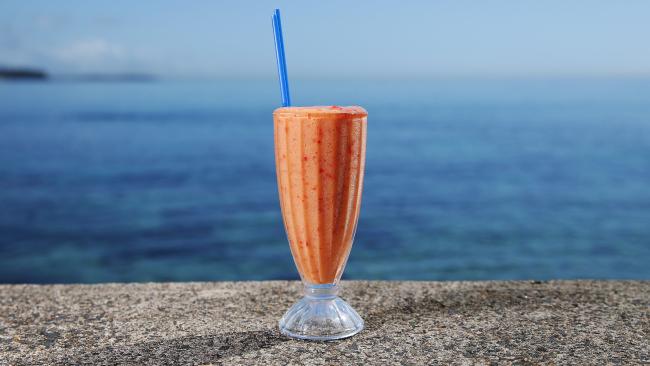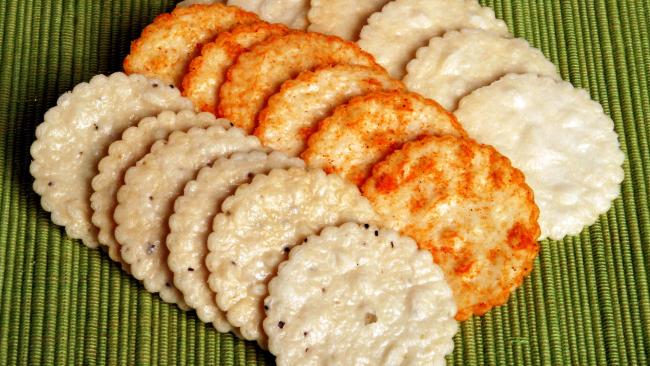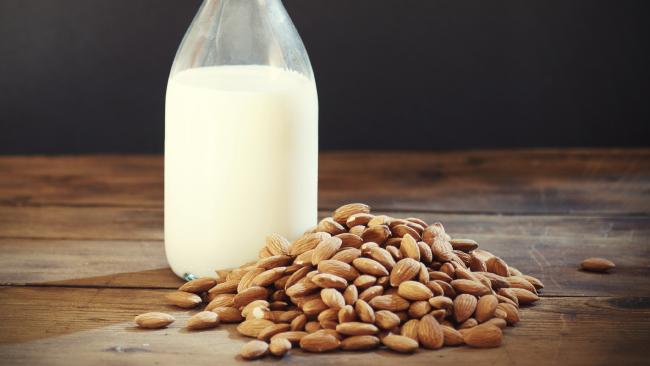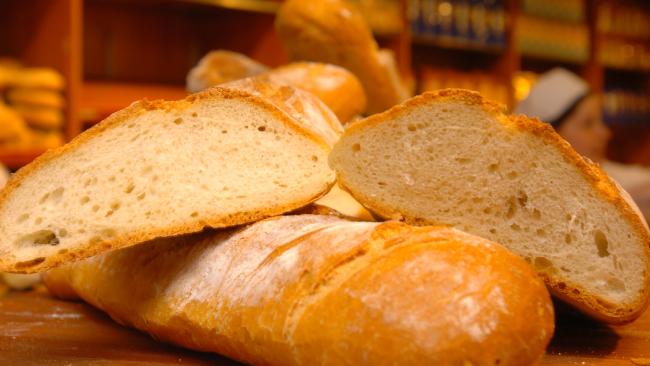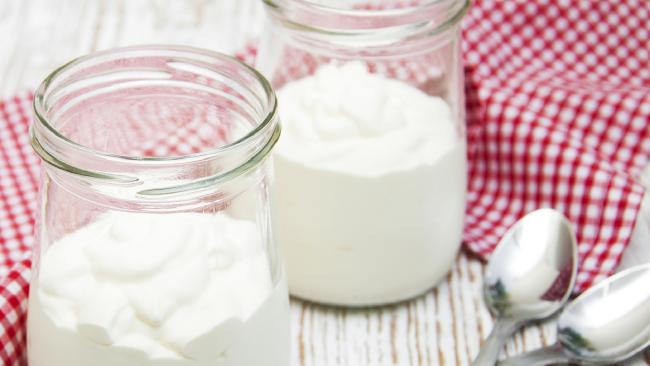
IF it looks healthy, sounds healthy and someone tells you it is healthy, especially if they have a book to promote, surely it is healthy, right? Hmmm maybe not, so let’s take a look at your favourite popular health foods and see if they are really all they are cracked up to be.
Low sugar baking
How could a ‘sugar free cake’ not be healthy? Two reasons actually. In more cases than not ‘low sugar’ baking does tend to contain sugar whether this is via dates, brown rice malt syrup or dextrose, or the cakes are exceptionally high in fat and calories courtesy of nut spreads, coconut oil, almond meal or coconut. A cake is still cake even though someone says it is low in sugar. So before you dive into the homemade cakes and bliss balls take a closer look at the ingredients. Chances are there is some sort of sugar used to make the product that really does not make it low sugar at all.
-
Your fruit smoothie may not actually be ‘healthy’.
-
Rice snacks can be a sneaky source of high GI carbohydrates.
-
Almond milk can have surprisingly few almonds.
-
Gluten-free bread is not necessarily ‘healthier’.
-
How to get superfoods into your diet3:10
Kate Midena and nutritionist Kathleen Alleaume talk about the benefits of superfoods and demonstrate how to build them into your diet
- in a few seconds
- a year ago
- /video/video.news.com.au/Lifestyle/Food/
How to get superfoods into your diet
Kate Midena and nutritionist Kathleen Alleaume talk about the benefits of superfoods and demonstrate how to build them into your diet
Fruit juice
It is easy to get confused with this one — how could something that comes from fruit, one of nature’s wonderfoods not be healthy? The issue with fruit juice is that it is an extremely concentrated source of calories, calories that come from simple sugars. When you consider that it can take up to 3 or 4 whole pieces of fruit to make a single glass of fruit juice, and that means the sugar and calories of each of those pieces of fruit, it starts to become clearer as to why fruit juice can quickly equate to a calorie overload. Unlike fruit itself, fruit juice does not offer the fibre or ‘full’ factor that real fruit offers. If you do love your juice, try vegetable varieties instead that have far fewer calories and make sure any juice you do have is made using a single piece of fruit.
Smoothies
Unfortunately when it comes to nutrition more is not better and smoothies that contain a mix of fruit, yoghurt, ice cream and honey can contain more calories than a meal and as much as 12 teaspoons of sugar. Unfortunately the other downside to drinking your calories is that the body does not compensate for liquid calories. This means that any liquid calories tend to be ‘extras’ that many of us do not need. If you do love a fruit based drink, aim for just 1 piece of fruit, plenty of ice along with milk or yoghurt to keep your calories and sugar intake under control.
Rice snacks
It doesn’t matter if rice has been made into a snack bar, cake, puff or crisp, rice is a dense source of high glycaemic index carbohydrate, which means that blood glucose levels rapidly increase, along with the hormone insulin, the hormone that also promotes fat storage in the body. Rice snacks are also low in protein and other key nutrients so they simply offer ‘empty calories’ along with a rapid rise in blood glucose levels rather than long lasting energy.
Fruit yoghurt
The number of yoghurts available in the supermarket continues to increase, which means that is can be harder to weed out the ‘healthy options’ among the high sugar varieties that tend to dominate the shelves. Plain natural or Greek yoghurts tend to be low in sugar, fat and calories but many of the fruit based options can contain as many calories as two slices of bread and up to six teaspoons of sugar. As a general rule of thumb, the lower the total carbohydrate content and the higher the protein content of your yoghurt, the better it will be for you.
Diet soft drink
While diet soft drink is a better option than the regular full strength stuff, this is not to say that ‘diet’ soft drinks are a healthy choice. Diet soft drinks may not contain sugar, instead sweetened with various types of artificial sweetener, but there is a growing body of evidence to show that consuming extremely sweet substances may promote overeating long term. There have also been some recent concerns over the various preservatives used in diet soft drinks, the interaction they have with artificial sweeteners and the effect this interaction has on various functions within the body’s cells. Given these concerns, while occasionally a diet drink is unlikely to do any harm, diet soft drink should never be considered a ‘healthy’ choice.
Coconut water
While coconut water, especially when served in a real coconut parades as the ultimate health drink for hydration, with 18g of sugars, or almost 4 teaspoons per 250ml serve it is still a high sugar choice of fluid. Touted as beneficial for hydration thanks to its naturally high potassium content, unless you were an elite athlete burning a significant number of calories each day, water is still going to be a much better choice for hydration. Sugar ‘tis sugar ‘tis sugar, natural or not.
Almond milk
Popular on paleo regimes and for those who want to avoid animal milks, unsweetened almond milk contains few calories per serve and literally no sugars but is actually relatively low in almonds with the most common brands containing as little as 2% resulting in a ‘milk’ that is low in protein and calcium. The other issue is that almond milk often contains added sugars and / or oils to improve its taste and texture which really just makes it sugary water.
Gluten free bread
If you have coeliac disease, or a known intolerance to gluten, gluten free bread can be a relatively healthy choice as part of a balanced diet. On the other hand, if you are simply ordering gluten free as you think it is healthier, be careful. As gluten is a protein found in wheat, gluten free breads often use rice flour, or other refined gluten free grains in their recipes. Ultimately this means you end up with a crumbly bread with a higher carb content than regular bread, made from refined white flours which have a relatively high GI. So if you do prefer gluten free, always look for wholegrain varieties and small slices where you can to avoid a carb overload.
Margarine
If you are trying to keep your diet fresh and as unprocessed as possible it makes little sense to add refined vegetable oils back into your diet when you can easily get your good oils via natural sources including olive oil, nuts, seeds and oily fish. While some margarines boast cholesterol lowering properties, it could be argued that bumping up your intake of good fats, minimising your intake of processed foods and losing a few kilos are much more powerful strategies as opposed to adding processed oil back into your diet via unnecessary spreads.
